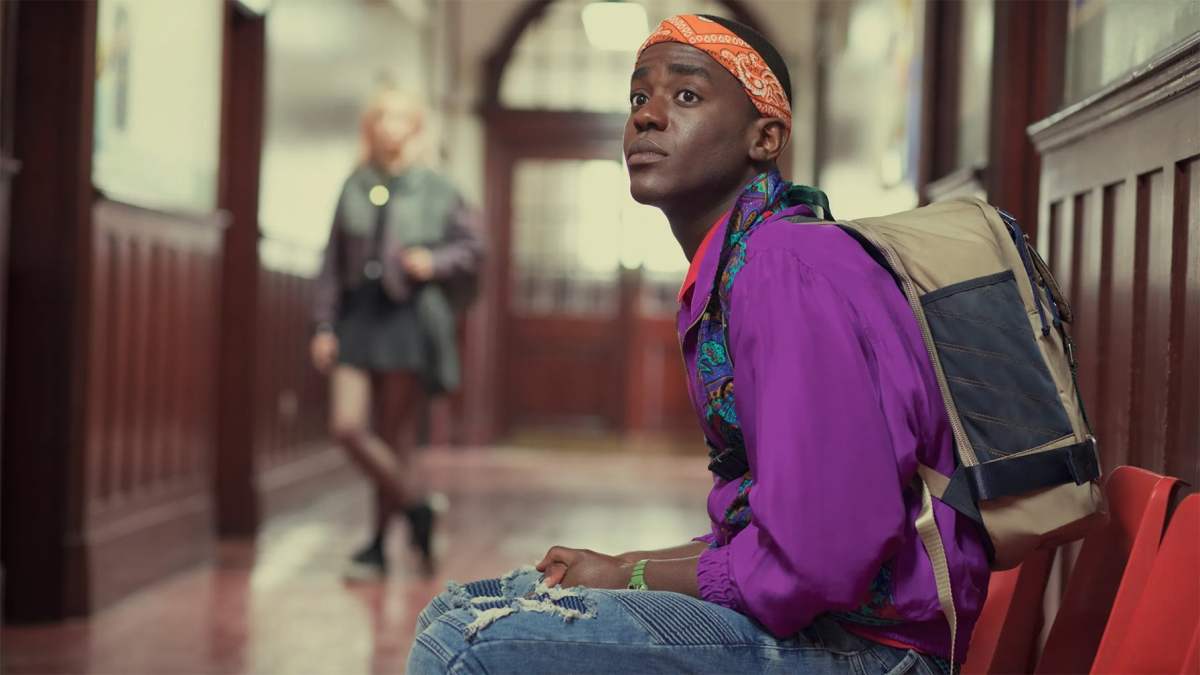Ncuti Gatwa is the next Doctor.
The casting came as some surprise, announced over social media in the lead-up to the British Academy of Film and Television Awards. In some ways, this might suggest the diminished profile of Doctor Who in contemporary pop culture. Matt Smith and Peter Capaldi were introduced in television specials, while Jodie Whittaker received a stylized promotional video. There is a lack of ceremony to announcing the casting via tweet.
Gatwa confirmed that he was only cast in February, suggesting that Russell T. Davies did not have Gatwa in mind for the role when he was announced as returning showrunner in September 2021. Although Jodie Whittaker confirmed that they did not shoot both sides of her regeneration, Gatwa wouldn’t even have been cast when Whittaker shot her final scene that October. The casting seems to have been down to the wire, given Davies’ version of Doctor Who entered production in March.
As a point of comparison, Matt Smith’s casting was announced in January 2009, six months before the fifth series entered production in July 2009. Peter Capaldi’s casting was announced in August 2013, five months before the eighth series started shooting in January 2014. Jodie Whittaker was announced to inherit the role in July 2017, about four months before filming began on the eleventh series that November.
Gatwa’s casting is interesting for a number of reasons. He is the first person of color to play the role of the Doctor as the credited lead on television, continuing the push for diversity in Doctor Who that really began with Davies’ revival of the show and continued through the seasons overseen by his successors Steven Moffat and Chris Chibnall. Indeed, Chibnall cast Jo Martin in a recurring role as a previously hidden incarnation of the character. Gatwa is also the fourth Scottish actor to play the role, behind Sylvester McCoy, David Tennant, and Peter Capaldi.

Most strikingly, Gatwa represents a break from the recent trend in casting the show’s lead role. The previous two actors to play the Doctor have been well established performers. Peter Capaldi is an institution of British film and television and remains the only Doctor to have an Oscar. Jodie Whittaker is also a fixture of prestige television and independent cinema in Britain, breaking out with Peter O’Toole in Venus in 2006 and playing a key role on television phenomenon Broadchurch.
Gatwa has a much shorter filmography. His breakout role came in playing Eric Effiong for three seasons on the Netflix comedy Sex Education, which earned him three consecutive BAFTA nominations. It’s tempting to overstate the degree to which Gatwa is a fresh and young talent, as Matt Smith was younger and less distinguished when he accepted the role. Peter Davison might be a better point of comparison, an actor cast at 29 with a popular television comedy-drama behind him.
Early speculation suggested that Davies might recruit an older performer like Hugh Grant or even entice David Tennant to return to the role. Davies has since suggested that he may have stoked such casting rumors himself to divert attention away from candidates like Gatwa. However, these casting suggestions are not atypical. It seems that every cycle of “next Doctor” speculation comes back to older veterans of British film and television like Kris Marshall or Paterson Joseph.
In practical terms, it makes sense to cast a younger actor. Doctor Who is one of the most demanding jobs on television. Three of the last four actors to play the lead — Tennant, Smith, and Capaldi — all required surgery during their time on the show. Whittaker has managed to avoid such misfortune, which is to the credit of showrunner Chris Chibnall’s management of the show’s logistics. However, it seems likely that Davies will be producing the show at a more accelerated pace.

Although casting speculation extended to younger celebrities like Olly Alexander and Lydia West, seemingly based on the fact that they both worked with Davies on It’s a Sin, there is perhaps something revealing in the internet’s fixation on older and established celebrities. It speaks to a certain vision of what Doctor Who is. More than that, it perhaps suggests assumptions about whom Doctor Who should be made for.
Actors like Capaldi and Whittaker naturally appeal to an older demographic. It is hard to imagine many teenagers thrilling at the goofy political maneuvering of The Thick of It or relaxing with the somber gritty vibes of Broadchurch. These actors are among the finest of their generation, but they appeal primarily to adult viewers. Indeed, Whittaker’s casting fresh off her collaboration with Chibnall on Broadchurch perhaps spoke to the “prestige-ification” of Doctor Who.
There is nothing inherently wrong with this. Indeed, Capaldi is arguably the best actor who ever played the lead role, with showrunner Steven Moffat arguing that Capaldi’s work in “Heaven Sent” represents “the best single performance in the role.” More than that, Moffat made the casting of an older actor something of a plot point during his tenure and often used Capaldi’s tenure to draw a line under what had come before, redefining and reinventing templates codified by Davies.
Whittaker is also a phenomenally talented performer, but she has suffered from weaker material. As with a lot of modern science fiction franchises, the Chibnall era feels like it is being written to appeal to older fans. Chibnall’s plotting often seems to be written to evoke 1960s writers like Terry Nation. The central mythology of Chibnall’s era, the idea of the Doctor having a set of hidden regenerations, is rooted in an overlap of two fan theories dating from the 1970s and 1980s.

More than that, Chibnall seemed to be aggressively chasing fans of Davies’ earlier tenure as producer, which began in 2005. Whittaker was often written in such a way as to evoke David Tennant. Chibnall brought back Davies-era companion Captain Jack Harkness (John Barrowman) and Davies-era villains like the Judoon and the Weeping Angels. He reset elements of the Davies era status quo, like the destruction of Gallifrey and hints of a companion romance.
It makes sense that the older Davies era should have been a touchstone for Chibnall. Davies managed to take a canceled cult television show and turn it into the most-watched show on British television. However, one of the bigger issues with Chibnall’s approach to Doctor Who was to assume that the show could appeal to exactly the same viewers by using exactly the same narrative tricks and by hitting exactly the same notes.
A 12-year-old who tuned into “Rose” in March 2005 would have been 25 when Jodie Whittaker headlined “The Woman Who Fell to Earth” and will be the same age as Ncuti Gatwa when he regenerates into the role later this year. Chibnall seemed to be pitching the show towards people who were Doctor Who fans more than a decade earlier, trying to draw them back with returning aliens and to appeal to their maturity by casting a star of popular prime-time entertainment.
This is perhaps the freshest and most exciting thing about the casting of Ncuti Gatwa. He doesn’t primarily appeal to the older viewers who would have been drawn to casting like Hugh Grant or Kris Marshall. Instead, he speaks to modern teenagers who are watching Sex Education on Netflix and who have helped to turn that show into a surprising (and growing) hit for the streaming service. He suggests that Davies is interested in attracting that audience, rather than prioritizing appeals to older fans.

Anecdotally, it may work. Although it is hard to quantify such things, I received a text message from my younger sister screenshotting the casting announcement tweet and declaring, in all caps and with exclamation marks, “NO WAY!!!” It is the smallest possible sample size, but it does represent a person who frequently forgets that Peter Capaldi exists and struggles to remember Jodie Whittaker. It is hard to believe that she is the only person of her generation to have that reaction.
Davies resurrected Doctor Who by helping the show to break out beyond its established fanbase. While he certainly didn’t ignore older fans, he focused on building a show that was welcoming to new and casual viewers, particularly younger audience members. It wasn’t always a graceful approach, as the farting aliens will attest, but populist youth-skewing choices like hiring popstar Billie Piper and folding in references to Big Brother ultimately paid off.
Chibnall has spent the past four years trying to recapture the magic of Davies’ original tenure by appealing to the fans who grew up with it. The casting of Ncuti Gatwa suggests that Davies might recreate his past successes by instead trying to cultivate a new generation of Doctor Who fans. The TARDIS might be pushing into the future for the first time in years.






Published: May 10, 2022 01:30 pm